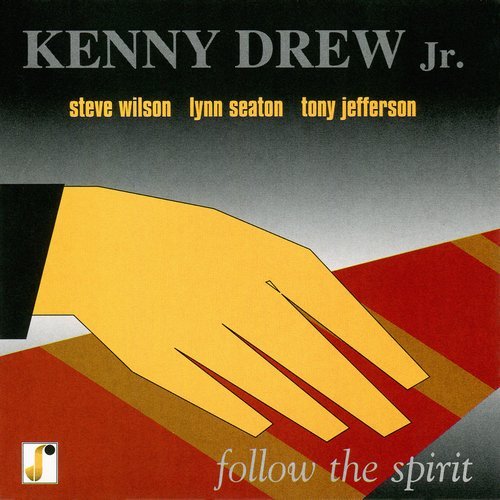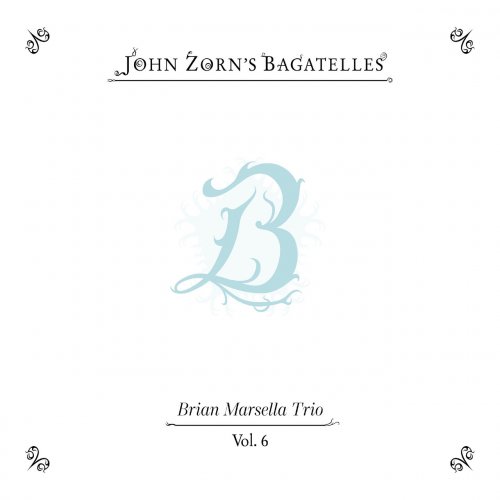Alexis Weissenberg - Grandi Pianisti Alexis Weissenberg (2021)

Artist: Alexis Weissenberg
Title: Grandi Pianisti Alexis Weissenberg
Year Of Release: 2021
Label: UMG Recordings, Inc.
Genre: Classical
Quality: FLAC (tracks)
Total Time: 1:30:03
Total Size: 305 MB
WebSite: Album Preview
Tracklist:Title: Grandi Pianisti Alexis Weissenberg
Year Of Release: 2021
Label: UMG Recordings, Inc.
Genre: Classical
Quality: FLAC (tracks)
Total Time: 1:30:03
Total Size: 305 MB
WebSite: Album Preview
01. Suite bergamasque, L.75 : 3. Clair de lune
02. Nocturne n°2 en mi bémol majeur Op.9 n°2
03. Préludes / Book 1, L.117 : 8. La fille aux cheveux de lin
04. Choral: Jesu bleibe meine Freude (Jesu, Joy Of Man's Desiring)
05. Children's Corner, L. 113 : 6. Golliwogg's Cakewalk
06. Etude en mi majeur Op.10 n°3
07. L'Isle joyeuse, L.106
08. Italian Concerto In F, BWV 971 : 2. Andante
09. Suite bergamasque, L. 75 : IV. Passepied
10. Nocturne No. 1 in B flat minor, Op. 9/1 (Remastered)
11. Children's Corner, L. 113 : 4. The Snow Is Dancing
12. Italian Concerto In F, BWV 971 : 1. (Allegro)
13. Nocturne n°20 en ut dièse mineur
14. Children's Corner, L. 113 : 1. Doctor Gradus ad Parnassum
15. Partita No.4 In D , BWV 828 : 1. Ouverture
16. Suite bergamasque, L. 75 : II. Menuet
17. Partita No.6 In E Minor, BWV 830 : 1. Toccata
18. Children's Corner, L. 113 : 5. The Little Shepherd
19. Estampes, L. 100 : 3. Jardins sous la pluie
20. Suite bergamasque, L. 75 : I. Prélude
21. Partita No.6 In E Minor, BWV 830 : 2. Allemande
22. La plus que lente, L. 121
23. Children's Corner, L. 113 : 2. Jimbo's Lullaby
24. Partita No.6 In E Minor, BWV 830 : 7. Gigue
25. Partita No.4 In D , BWV 828 : 5. Sarabande
If one wanted to make a biographical feature film about a classical musician, the life of the Bulgarian-American-French pianist Alexis Weissenberg would furnish ideal subject material. Born in Sofia in 1929, Weissenberg was taught to play the piano by his mother. Several members of her family were Vienna Conservatory-trained musicians, and Weissenberg grew up in an environment where the sight-reading of chamber music was as common as watching television is for most children today. His second piano teacher was a disciplinarian dentist, his third Bulgaria's top composer and pedagogue, Pancho Vladigerov, at whose house Weissenberg heard Dinu Lipatti perform.
At age 10, Weissenberg gave his first recital, performing, among other works, an etude of his own composition. Shortly thereafter, Weissenberg and his mother attempted to flee Bulgaria for Turkey as fascist terror deepened. They were caught and thrown in a concentration camp. "Only three elements remained constant," Weissenberg recalled. "Silence, singing, and crying." What saved the pair was an accordion Weissenberg had been given as a gift by an aunt. A German guard who liked music let Weissenberg play and after three months put the Weissenbergs on a train to Istanbul, throwing the accordion into their compartment through an open window as they left.
They made their way to Turkey and then to Israel, where Weissenberg studied at the Jerusalem Academy of Music and performed with the Israel Philharmonic under the baton of Leonard Bernstein. He left his accordion with a group of children after playing an outdoor concert and departed for the U.S. in 1946. Weissenberg enrolled at the Juilliard School of Music, studying with Olga Samaroff and at times with Artur Schnabel, and making contact with Vladimir Horowitz, who urged Weissenberg to enter the Leventritt Award competition. Weissenberg won the award in 1947, and his career was launched. His U.S. debut came with the New York Philharmonic, conducted by George Szell, and for the next ten years he toured the U.S. and Europe.
In 1956 Weissenberg moved to Paris, eventually becoming a French citizen. For a decade beginning around that time, he took a hiatus from performing, subjecting himself to a reconstruction of his keyboard technique. His performances of Chopin, Rachmaninov, and Prokofiev were especially notable, and the Bach Chromatic Fantasy and Fugue was a staple of his recital programming. His recordings of the 1960s and 1970s remained well represented in reissues on the EMI label as of the early 2000s, and he remained active into old age. ~ James Manheim
At age 10, Weissenberg gave his first recital, performing, among other works, an etude of his own composition. Shortly thereafter, Weissenberg and his mother attempted to flee Bulgaria for Turkey as fascist terror deepened. They were caught and thrown in a concentration camp. "Only three elements remained constant," Weissenberg recalled. "Silence, singing, and crying." What saved the pair was an accordion Weissenberg had been given as a gift by an aunt. A German guard who liked music let Weissenberg play and after three months put the Weissenbergs on a train to Istanbul, throwing the accordion into their compartment through an open window as they left.
They made their way to Turkey and then to Israel, where Weissenberg studied at the Jerusalem Academy of Music and performed with the Israel Philharmonic under the baton of Leonard Bernstein. He left his accordion with a group of children after playing an outdoor concert and departed for the U.S. in 1946. Weissenberg enrolled at the Juilliard School of Music, studying with Olga Samaroff and at times with Artur Schnabel, and making contact with Vladimir Horowitz, who urged Weissenberg to enter the Leventritt Award competition. Weissenberg won the award in 1947, and his career was launched. His U.S. debut came with the New York Philharmonic, conducted by George Szell, and for the next ten years he toured the U.S. and Europe.
In 1956 Weissenberg moved to Paris, eventually becoming a French citizen. For a decade beginning around that time, he took a hiatus from performing, subjecting himself to a reconstruction of his keyboard technique. His performances of Chopin, Rachmaninov, and Prokofiev were especially notable, and the Bach Chromatic Fantasy and Fugue was a staple of his recital programming. His recordings of the 1960s and 1970s remained well represented in reissues on the EMI label as of the early 2000s, and he remained active into old age. ~ James Manheim


![The Three Seas - Antaḥkaraṇa (2026) [Hi-Res] The Three Seas - Antaḥkaraṇa (2026) [Hi-Res]](https://img.israbox.com/img/2026-02/19/uhghtg21m4gkq8nt8lyl1f5dq.jpg)

![Hyper Elastic Jinx - We Vote Force Majeure (2026) [Hi-Res] Hyper Elastic Jinx - We Vote Force Majeure (2026) [Hi-Res]](https://www.dibpic.com/uploads/posts/2026-02/1771485115_cover.jpg)

![Tiziano Tononi, Daniele Cavallanti & Nexus - Open Mouth Blues (Remastered) (2026) [Hi-Res] Tiziano Tononi, Daniele Cavallanti & Nexus - Open Mouth Blues (Remastered) (2026) [Hi-Res]](https://www.dibpic.com/uploads/posts/2026-02/1771515311_cover.jpg)
![Matt Monro - Matt Sings Monro (Live at the BBC, Remastered 2023) [Hi-Res] Matt Monro - Matt Sings Monro (Live at the BBC, Remastered 2023) [Hi-Res]](https://www.dibpic.com/uploads/posts/2026-02/1771586614_k3yj19donljhc_600.jpg)
